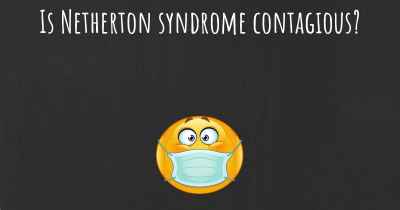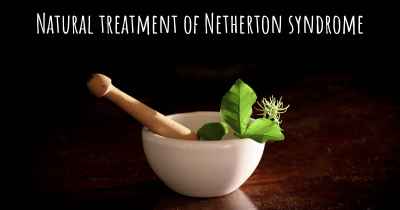What are the best treatments for Netherton syndrome?
See the best treatments for Netherton syndrome here

Treatments for Netherton Syndrome
Netherton syndrome is a rare genetic disorder characterized by various skin abnormalities. It is caused by mutations in the SPINK5 gene, which leads to a deficiency in the production of a protein called LEKTI. This protein plays a crucial role in maintaining the integrity of the skin barrier. As a result, individuals with Netherton syndrome experience a range of symptoms including red, scaly skin, hair abnormalities, and an increased susceptibility to infections. While there is no cure for Netherton syndrome, several treatments can help manage the symptoms and improve the quality of life for affected individuals.
1. Skin Care
Proper skin care is essential for individuals with Netherton syndrome. It involves regular moisturizing to prevent dryness and scaling, as well as the use of gentle cleansers to avoid further skin irritation. Emollients and moisturizers containing ceramides or urea can be particularly beneficial in restoring and maintaining the skin barrier function.
2. Topical Steroids
Topical corticosteroids are commonly prescribed to reduce inflammation and relieve itching associated with Netherton syndrome. These medications help to control the skin manifestations and minimize the risk of infection. However, long-term use should be carefully monitored to prevent potential side effects such as skin thinning.
3. Topical Calcineurin Inhibitors
Topical calcineurin inhibitors like tacrolimus and pimecrolimus can be used as an alternative or adjunct to corticosteroids. They help reduce inflammation and itching without causing skin thinning. These medications are particularly useful in sensitive areas such as the face and groin, where corticosteroids may be less desirable.
4. Antibiotics and Antiseptics
Antibiotics may be prescribed to treat or prevent bacterial infections that can occur due to the compromised skin barrier in Netherton syndrome. Additionally, antiseptic solutions or creams can be used to reduce the risk of infection and promote wound healing.
5. Systemic Medications
In severe cases of Netherton syndrome, systemic medications may be necessary to manage symptoms. These medications include:
- Systemic corticosteroids: Oral corticosteroids may be prescribed for short periods to control severe inflammation and itching.
- Immunosuppressants: Medications like methotrexate or cyclosporine can be used to suppress the immune system and reduce skin inflammation.
- Retinoids: Oral retinoids like acitretin may be considered in certain cases to improve the skin barrier function and reduce scaling.
6. Supportive Therapies
Various supportive therapies can help manage the symptoms and improve the overall well-being of individuals with Netherton syndrome. These include:
- Emotional support: Living with a chronic condition can be challenging, so counseling or support groups can provide emotional support for both patients and their families.
- Wound care: Proper wound care techniques can help prevent infection and promote healing.
- Dietary modifications: Some individuals with Netherton syndrome may benefit from dietary adjustments, such as avoiding certain allergenic foods that can exacerbate symptoms.
- Monitoring and management of associated conditions: Regular monitoring and treatment of associated conditions like allergies, asthma, or growth abnormalities are important for comprehensive care.
It is crucial for individuals with Netherton syndrome to work closely with a dermatologist or a specialized healthcare team to develop a personalized treatment plan. Regular follow-ups and adjustments to the treatment regimen may be necessary to address the evolving needs of the patient.








